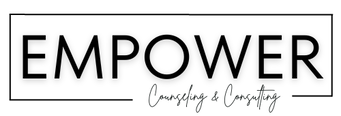Deconstructing Religion, Religious Trauma, and Church Hurt
If there's one thing I think most of us can agree on, it's that religion itself, as well as our faith communities, can feel messy at times. People hurt and disappoint us, and Christianity isn't immune to this. Over the past few years, I have come to find more and more women sitting in my office needing space to process the pain they have experienced within religion and religious communities, and the deep questions that arise from that grief.
Whether you are sorting through relationships that have been impacting from this hurt, questioning where your beliefs now land, or simply starting with acknowledging how painful this is- therapy is the right place to process this safely.
Whether you are sorting through relationships that have been impacting from this hurt, questioning where your beliefs now land, or simply starting with acknowledging how painful this is- therapy is the right place to process this safely.
Healing from Church Hurt
Many people have been hurt by the church. This is just an unfortunate truth. I've worked with many women who have either been on church staff, a loyal member and volunteer, or even helped to build a church from the ground up, who have found themselves feeling taken advantage of, silenced, or even pushed out of their community.
There is so much to unpack emotionally when this happens. How does this impact your faith? Where is God through all of this? Where is the justice? How can you feel safe within a community again?
Processing the grief of the hurt that you have experienced, as well as finding ways to move forward, is the goal for therapy after church hurt, so that you can eventually arrive at a place of healing, peace, and confidence in how you want to move forward.
There is so much to unpack emotionally when this happens. How does this impact your faith? Where is God through all of this? Where is the justice? How can you feel safe within a community again?
Processing the grief of the hurt that you have experienced, as well as finding ways to move forward, is the goal for therapy after church hurt, so that you can eventually arrive at a place of healing, peace, and confidence in how you want to move forward.
Deconstructing Religion
"Deconstruction" is a term that is getting a bad wrap- with assumtions that people just want to look for excuses to sin. This couldn't be farther from the truth. The majority of people I work with who are in this space feel a deep sense of crisis when this journey starts. They often feel like they didn't intend to be in this place of questioning, but something has happened that they can no longer ignore the questions that they likely have been trying to ignore for a really long time. It starts to feel like everything that you once felt certain about is starting to unravel.
I want you to know that you are not alone and exploring your questions is not wrong. My goal for therapy is not to answer all of your questions (because I certainly don't have them!) or to lead you in a specific direction- I do not have an agenda for you. I'm here to help you explore. Some people end up finding a new way for faith to feel more authentic, some people leave their faith behind completely, and some fall somewhere in between. Only you can ultimately decide where this journey takes you.
I want you to know that you are not alone and exploring your questions is not wrong. My goal for therapy is not to answer all of your questions (because I certainly don't have them!) or to lead you in a specific direction- I do not have an agenda for you. I'm here to help you explore. Some people end up finding a new way for faith to feel more authentic, some people leave their faith behind completely, and some fall somewhere in between. Only you can ultimately decide where this journey takes you.
Religious Trauma
Religious trauma can mean many different things and happen in many different ways. It may be difficult to even name your experience as "trauma" in the beginning, but I can assure it's happening far too often, Here are some of the traumas I have identified in working with my clients:
-Sexual abuse
-Purity Culture (I have a podcast on this topic!)
-Manipulation
-Misuse of scripture in order to control
-Using fear of punishment to control behavior
-Gender-based discrimination or restriction of roles based on religious teachings
-Strict adherence to dogmatic beliefs that limit personal growth and exploration
-Shaming or guilt-tripping individuals based on religious beliefs
These are just a few, but if any of this resonates with you, it's worth exploring in therapy how it molded and shaped your beliefs about yourself, and what room there is for healing.
-Sexual abuse
-Purity Culture (I have a podcast on this topic!)
-Manipulation
-Misuse of scripture in order to control
-Using fear of punishment to control behavior
-Gender-based discrimination or restriction of roles based on religious teachings
-Strict adherence to dogmatic beliefs that limit personal growth and exploration
-Shaming or guilt-tripping individuals based on religious beliefs
These are just a few, but if any of this resonates with you, it's worth exploring in therapy how it molded and shaped your beliefs about yourself, and what room there is for healing.
Copyright © 2022 Empower Counseling & Consulting of Atlanta, LLC. All Rights Reserved.
Proudly powered by Weebly
